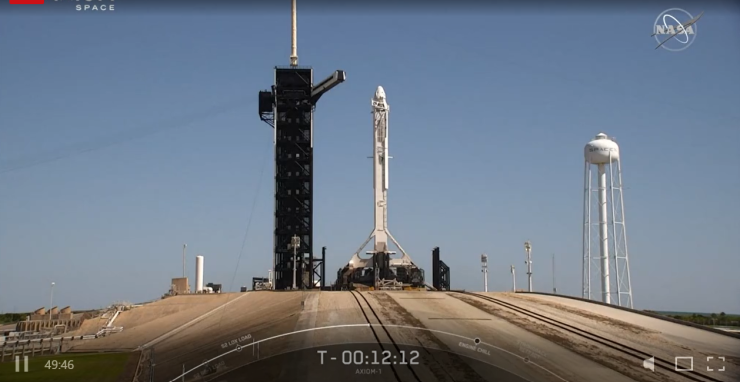Business of Space: ‘We’re taking business off the face of the Earth,’ says NASA administrator ahead of launch

This week:
- Type One bets on London
- A historic commercial collaboration
- NASA’s moon setbacks
Type One
US-based venture capital fund Type One has launched a $50m (£38.3m) space and deep tech fund in London, as it steps into UK and European markets.
The firm, which has $100m in assets under management, is hoping to catch the wave of investment interest in space tech across the Continent.
“When you look at earth from space, you don’t see borders. We believe that a Type One civilization will be a global and interconnected society so for us it’s a no-brainer to have a global footprint beginning in London,” founder Tarek Waked said in a statement yesterday.
Type One is looking to “spearhead the development” of one of the UK’s fastest growing sectors, which is already worth around £14.8bn a year – prior to even having its first lauch from British soil.
CEO of the Satellite Applications Catapult, Stuart Martin, added: “Innovation in the UK space sector is thriving, and new sources of investment like the fund announced today by Type One will accelerate the progress of pioneering UK companies, and bring their remarkable work to global prominence.”
Axiom Space and NASA
NASA’s first-ever private sector launch to the International Space Station (ISS) is set to take off this afternoon, as the US space agency looks to further commercialise outer space.
In collaboration with Axiom Space and SpaceX, the 10-day mission will launch from the Kennedy Space Centre, in Florida.
The SpaceX rocket will carry three paying customers and space veteran and former NASA astronaught Michael López-Alegría, who once set the record for the longest space mission of any American astronaut.
Those forking out for the trip of a lifetime are Israeli businessman Eytan Stibbe; Canadian investor Mark Pathy; and US real estate magnate Larry Connor.
Axiom Space previously disclosed a price of $55m (£42m) per seat for a 10-day trip to the ISS, however, the company has declined to comment on the figure for this specific, historic, mission.
Axiom Space, which has separately teamed up with London’s Space Entertainment Enterprise for their own commercial space station, provided all the necessary training, coordinated flights and booked the rocket rides with SpaceX for the 20-hour flight to the ISS.
NASA administrator Bill Nelson said the landmark mission would be the first step in the space agencies ability to “lease space” on a commercial level.
“We’re taking commercial business of the face of the Earth and up into space,” he told an interviewer prior to the launch. “We want to get NASA out of LEO (low Earth orbit) and off into the heavens.”
NASA
While all looks to go ahead successfully with the Axiom launch, NASA has swallowed its fair share of setbacks.
The space agency on Monday was forced to cancel its mission critical ‘wet test’ of the Artemis 1 Space Launch System (SLS) due to safety concerns with the $1bn (£767m) platform.
The so-called wet test for the next-generation moon rocket was essentially a dress rehearsal – without actually taking off.
However, an issue with the launch platform meant that a crucial system used to “keep out hazardous gases”, failed. In a statement published late on Sunday, NASA said its teams “decided to scrub tanking operations”.
The space agency plans to complete a moon landing in 2024.